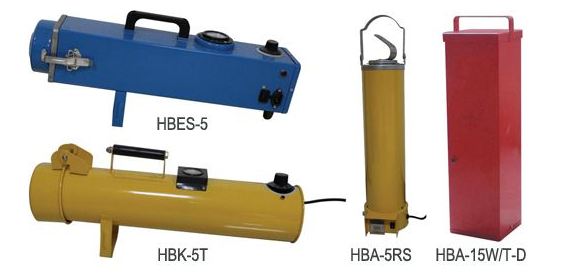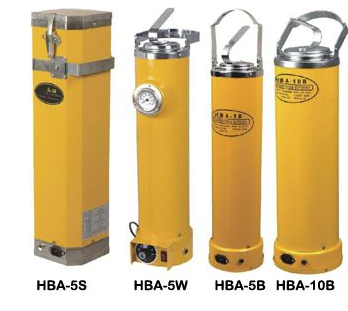Portable electrode ovens are essential tools in the welding industry, designed to maintain welding electrodes in optimal condition. These ovens ensure that electrodes remain dry and free from moisture, which is critical for achieving high-quality welds. Moisture-contaminated electrodes can lead to defects, compromise weld strength, and fail to meet industry standards. In this article, we’ll explore the purpose, benefits, and applications of portable electrode ovens, as well as answer frequently asked questions about their use.
1. Why Are Portable Electrode Ovens Important?
Electrodes used in welding are typically coated with flux, a material that helps stabilize the welding arc and protect the weld pool from contamination. However, many electrodes, particularly low-hydrogen electrodes, are highly hygroscopic, meaning they absorb moisture from the air. This can lead to several problems:
Hydrogen Embrittlement: Moisture in electrodes introduces hydrogen into the weld, increasing the risk of cracks and reducing weld durability.
Porosity: Excessive moisture causes gas pockets or voids in the weld, leading to poor weld quality.
Non-compliance: Many industry standards, such as those from AWS and ASME, mandate strict control of electrode storage to ensure weld integrity.
Portable electrode ovens prevent these issues by maintaining a consistent temperature to keep electrodes dry and ready for use, even in challenging environments.

Portable Electrode Ovens
2. How Does a Portable Electrode Oven Work?
A portable electrode oven is a compact, insulated container equipped with a heating element and thermostat. Its primary function is to maintain a stable, elevated temperature to prevent moisture absorption. Here’s how it works:
Heating Mechanism: The oven uses a heating element to generate and distribute heat evenly throughout the chamber.
Thermostat Control: A thermostat regulates the internal temperature, typically set between 100°C and 150°C (212°F to 302°F), depending on the type of electrode.
Portability: Compact designs and lightweight construction make these ovens easy to transport, ensuring convenience on job sites.
3. Key Benefits of Using Portable Electrode Ovens
Investing in a portable electrode oven offers several advantages for welders and industries reliant on welding operations:
3.1. Ensures Weld Quality
By keeping electrodes dry and free from contaminants, portable ovens help produce clean, defect-free welds with high structural integrity.
3.2. Enhances Productivity
Welders can focus on their tasks without interruptions caused by faulty or unusable electrodes, leading to improved efficiency and reduced downtime.
3.3. Meets Industry Standards
Using a portable oven ensures compliance with industry requirements for electrode storage, helping avoid penalties or project delays.
3.4. Cost-Effective
Proper electrode storage reduces waste by preventing moisture damage, saving money on replacement electrodes and rework costs.

Portable Electrode Ovens
4. Applications of Portable Electrode Ovens
Portable electrode ovens are widely used across various industries and applications:
Construction: For welding in large-scale projects such as buildings, bridges, and pipelines.
Shipbuilding: Ensures high-quality welds in marine environments, where moisture is a significant concern.
Oil and Gas: Used in welding operations for pipelines and refineries that require precise and durable welds.
Field Repairs: Ideal for outdoor welding tasks where environmental conditions may affect electrode quality.
5. Factors to Consider When Choosing a Portable Electrode Oven
When selecting a portable electrode oven, consider the following factors to ensure it meets your needs:
Capacity: Choose an oven size that accommodates the quantity of electrodes you typically use.
Temperature Range: Ensure the oven can maintain the required temperature for your electrode type.
Durability: Opt for a robust design that can withstand tough job site conditions.
Portability: Look for lightweight and compact designs with handles for easy transport.
6. FAQs About Portable Electrode Ovens
Q1: Can I use a regular oven to store electrodes?
While a regular oven can dry electrodes temporarily, it is not designed for consistent temperature control or portability, making it unsuitable for professional welding applications.
Q2: How long can electrodes stay in a portable oven?
Electrodes can remain in a portable oven for extended periods, provided the temperature is maintained within the recommended range. However, always follow the manufacturer’s guidelines for specific electrode types.
Q3: What happens if electrodes are exposed to moisture?
Moisture exposure can cause hydrogen embrittlement, porosity, and reduced weld strength, leading to defects and potential structural failures.
Q4: Are portable electrode ovens expensive?
Prices vary depending on size, capacity, and features. However, they are a cost-effective investment for maintaining electrode quality and preventing waste.
Q5: Can I use a portable electrode oven for all types of electrodes?
Most portable ovens are suitable for low-hydrogen electrodes, but you should verify compatibility with the specific electrode type you’re using.
7. Conclusion
A portable electrode oven is an indispensable tool for welders who require high-quality, reliable electrodes in their work. By keeping electrodes dry and ensuring compliance with industry standards, these ovens enhance productivity, reduce costs, and improve weld integrity. Whether you’re working on a large construction site or conducting field repairs, a portable electrode oven can be the key to achieving professional-grade results. Invest in the right oven for your needs and experience the difference in your welding projects.
If you have any concerns and questions that you are seeking, then feel free to ask me. I’ll be happy to help you out.







